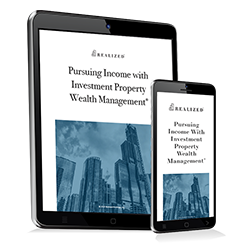
Retirees often have multiple sources of income. These can include Social Security benefits, pension plans, individual retirement accounts, brokerage, and other investment accounts. They can also even include side hustles like driving for Uber or Lyft.
Retirees can start drawing Social Security retirement benefits when they are 62 years old, although payments are at a reduced rate than if they waited until the full retirement age of 67 for people born in 1960 or later. You can continue to work, but your benefits will be reduced if you earn more than the modest limit set by the Social Security Administration.
Social Security is unearned income and does not count as earnings, so it won’t affect your ability to collect unemployment benefits if you continue to work. Other sources of income, however, could affect your ability to draw unemployment.
Can You Collect Unemployment Insurance After Retiring?
Say you choose to continue working after reaching retirement age, which qualifies you to draw unemployment if you get laid off or lose your job through no fault of your own. However, if you have other sources of income, they may make you ineligible to collect unemployment benefits.
States use different criteria to establish unemployment benefit eligibility. No matter where you live, you have to have earned a certain threshold of income over the past 12 months in order to qualify for unemployment benefits. If Social Security is your only source of income, then you will likely qualify for full or partial unemployment since those payments aren’t earned income.
Likewise for other primary sources of retirement income. According to the IRS, earned income only comes from wages, tips, salary, net income from self-employment, and gambling winnings. Retirement income, such as pension payments or rent derived from real estate investment properties, doesn’t count as earned income and won’t skew your ability to collect unemployment.¹ Interest and dividend payments from brokerage accounts also aren’t considered earned income.
There are some exceptions, though. In Texas, for instance, pensions and other forms of retirement pay can be deducted from your unemployment benefit payments if they are from a base-period employer, or an employer that paid you during any four of the last five quarters.
The Bottom Line
Establishing unemployment eligibility and benefit amounts varies from state to state. If you have sources of retirement income outside of earned wages or a salary, they may affect your unemployment benefits. The most effective path forward is to speak with a benefits counselor at your local unemployment office.
Source:
1 What Income is Considered Earned Income, IRS, https://www.irs.gov/government-entities/indian-tribal-governments/itg-faq-2-answer-what-income-is-considered-earned-income
This material is for general information and educational purposes only. Information is based on data gathered from what we believe are reliable sources. It is not guaranteed as to accuracy, does not purport to be complete and is not intended to be used as a primary basis for investment decisions. It should also not be construed as advice meeting the particular investment needs of any investor. Realized does not provide tax or legal advice. This material is not a substitute for seeking the advice of a qualified professional for your individual situation.


